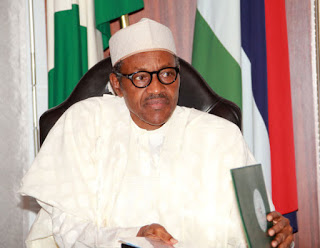
Saturday, 5th of September 2015, marked President Muhammadu Buhari’s first 100 days in office. Days leading up to that, the media had covered the topic extensively; ranging from reactions from opposition parties, stakeholders, APC members and Nigerians.
For starters, the popular micro blog, twitter went agog last week with hashtags by disappointed Nigerians, such as #100WastedDays and #100FailedPromises. This hashtags said a lot about how high the expectations of Nigerians are and how well they feel disappointed.
As issues were being raised about Buhari’s performance in line with his 100 days in office promises, the presidency blatantly denied ever making a 100 days promise to Nigerians. They said the promises Nigerians were referring to did not come from the stables of APC, rather they were from individual supporters of Buhari’s candidacy during the election. As convincing as the presidency’s denial of the 100 days in office promises was, some media outfits still maintained that Buhari actually did make those promises. Their fact finding exercises revealed it.
One outfit in particular reported that at Chatham House in London February, Muhammadu Buhari declared that if elected president of Nigeria, he would prioritise the fight against corruption, as well as insecurity and unemployment. The outfit quoted him as saying, “In the face of dwindling revenues, a good place to start the repositioning of Nigeria’s economy is to swiftly tackle two ills that have ballooned under the present administration: waste and corruption,”.
Despite these criticisms, there were some people who believed Buhari despite the enormous challenges before him has reasons to celebrate his first 100 days in office. Martin Ewi, Senior Researcher, Transnational Threats and International Crime division at ISS was reported by some media outfits to have said that “despite these challenges, there is every reason for Buhari to celebrate his 100 days at the helm of Aso Rock,”. Ewi also noted positive development under Buhari to include the military rescuing the majority of the women and girls that Amnesty International estimated had been kidnapped or abducted by Boko Haram.
Additional towns and villages have been retaken, including the recent liberation of Gamboru Ngala, a strategic town bordering Cameroon.
In thesame vein, so much credit has also come Buhari’s way in terms of stable power. Last week, one columnist explained the experience of his brother who lives outside Nigeria but visited recently. He said “my brother and his family visited Nigeria last month and they stayed for three weeks. He told me that the power supply has changed for the better. He was pleasantly surprised that there are longer days with power compared to the way it was in the past”. There are even more testimonies to how stable power has become under the leadership of Buhari. Some would however argue that, power is stable because it’s the raining season, but this does not change the fact that this is not the first raining season Nigeria is witnessing.
Support InfoStride News' Credible Journalism: Only credible journalism can guarantee a fair, accountable and transparent society, including democracy and government. It involves a lot of efforts and money. We need your support. Click here to Donate
